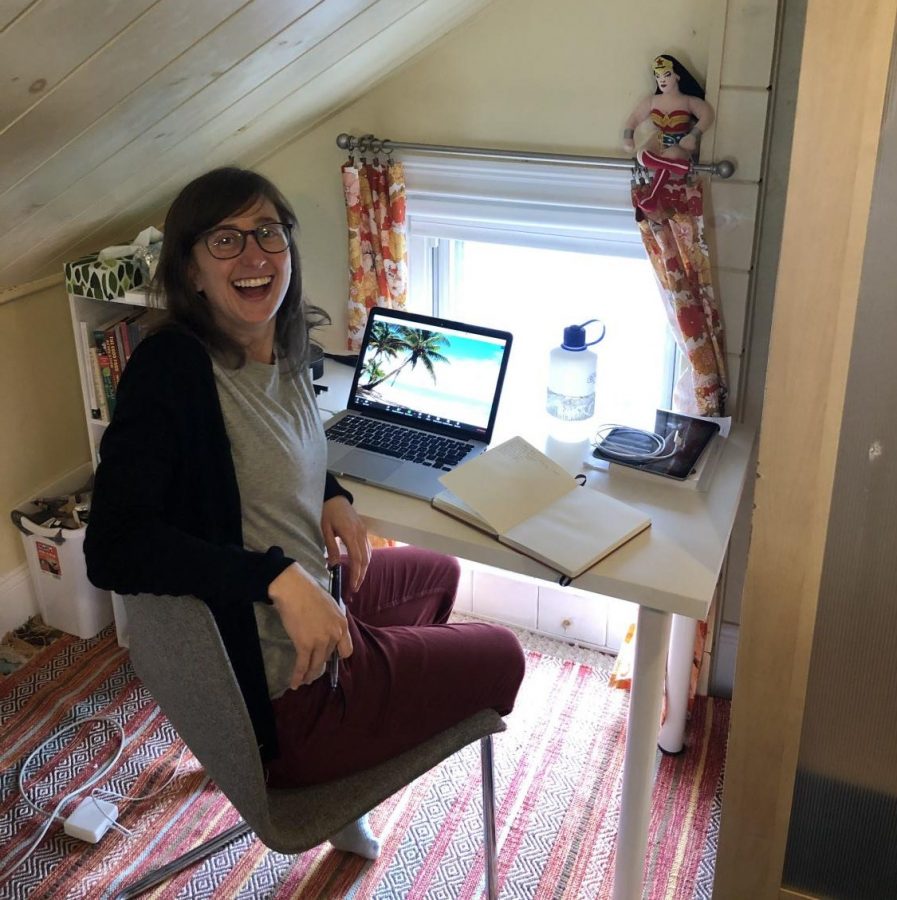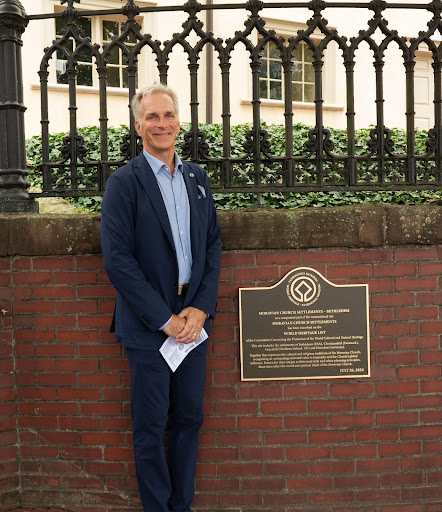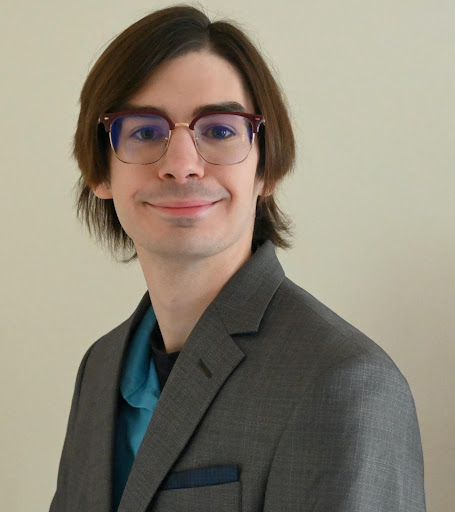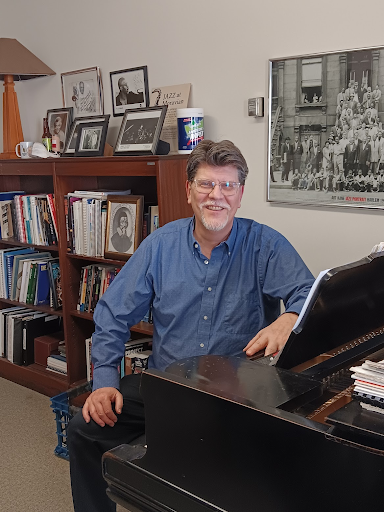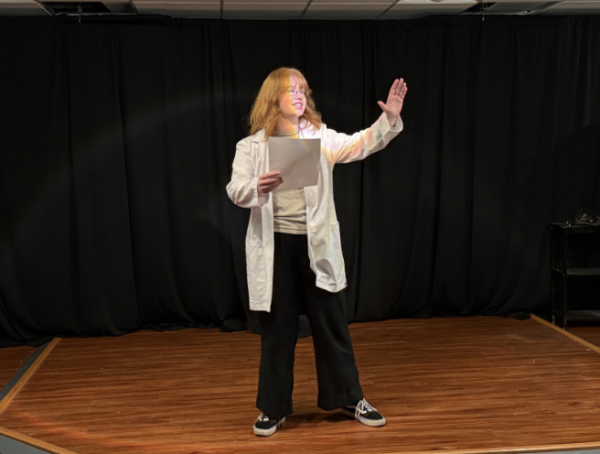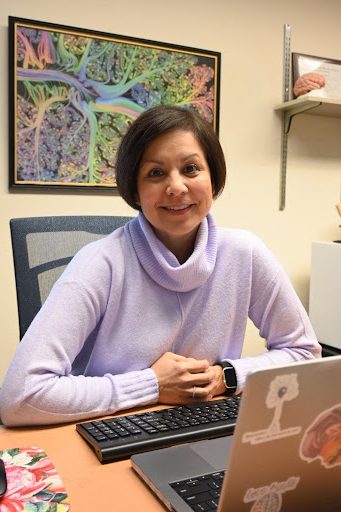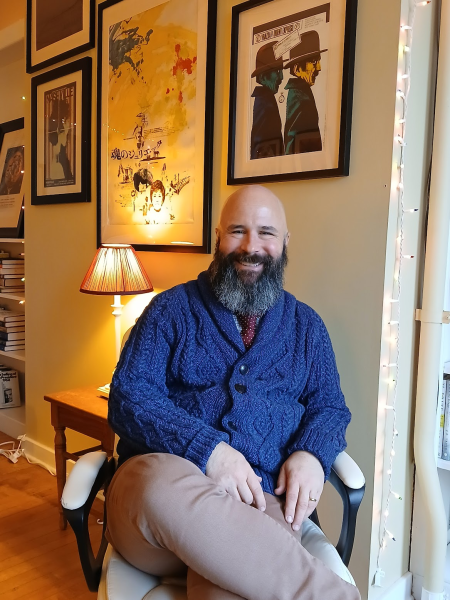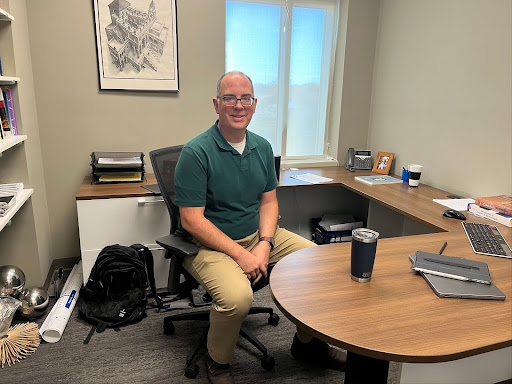Professor Spotlight: Dr. Dietlinde Heilmayr
Dietlinde Heilmayr is an assistant professor of health psychology at Moravian. She earned her B.A. from Hendrix College and her Ph.D. in social and personality psychology with an emphasis in health from the University of California, Riverside.
What inspired you to go into your field of study?
I had two jobs after finishing my undergraduate degree that set me on my path. The first, teaching English in Austria on a Fulbright Scholarship, revealed to me how much I love interacting with students and exploring new ideas. The second, an AmeriCorps position running a gardening club for elementary school students in California, highlighted to me the need for rigorous research on whether and why nature experiences can be good for us. My desire to teach and to do research on this topic led me to graduate school and then to Moravian College!
What research are you currently working on?
Students and I are wrapping up a project in which we explore how community gardens can be helpful to refugee communities. We also just finished collecting data about how people are using nature to cope with the COVID-19 pandemic and I’m looking forward to diving into those data this summer. My third project is a collaboration with faculty at Northampton Community College looking at how classes with outdoor components might benefit students—another project I’m excited to jump into this summer.
What do you think is the most recent important development in your field of study?
Any of my Psyc 211/212 students or students from Social Psychology could probably tell you my answer to this: open science! Historically, the research that psychologists conducted was not very transparent. This, in part, led to what’s commonly referred to in my field as “the replication crisis,” meaning that many of the published effects could not be found by other labs when they conducted the exact same study. Concerns around this issue led to thoughtful changes to the scientific standards and best practices in my field, including but not limited to the preregistration of methods and hypotheses, data and code sharing, and open access publishing. It’s been a bit of a revolution in the field with a lot of push back, but I think it’s making for a much stronger science that many other fields could learn from.
What job would you have if you couldn’t be a professor, regardless of salary and job outcome? Why?
I’d love to be an outdoor guide of some sort—leading people on backpacking trips or long biking trips. It blends my love for adventure and the outdoors with my love for teaching.
What do you know now that you wished you knew when you were in college?
I wish I knew to appreciate the journey as much as the end goal. This is something I still struggle with, but I’ve gotten better about it over the years.
What is your biggest student pet peeve?
Can I instead say what I love most about interacting with students, and you can infer that the opposite end of the spectrum is my pet peeve? I love it when students fully engage and challenge themselves—aiming to go above and beyond in the classroom and with their assignments. This doesn’t necessarily equate with being a “straight-A student,” it’s about being excited about the opportunities for growth and development that higher education provides. The students who are hungry for education are really the highlight of my work as a faculty member.
What was the last streaming show that you binge-watched or the last good book that you read?
I’ve been reading two of my favorite authors lately: David Sedaris, who always makes me laugh out loud, and Rebecca Solnit, whose poetic and incisive writing helps me identify and process emotions during difficult times.
What is something interesting about you that most people don’t know?
I rode my bicycle across the country, from Nags Head, North Carolina to San Diego, California. I did this with an organization called Bike and Build, which raises awareness around affordable housing and empowers young adults via service-oriented cycling trips. Check them out if you enjoy riding bikes! You’ll have the summer of a lifetime!
What’s your spirit animal and why?
Somehow I’ve adopted the sloth as a spirit animal. I’m pretty active, so I’m not quite sure how this happened, but friends regularly send me sloth paraphernalia. I have sloth coasters, sloth stickers, sloth mugs, a sloth stuffed animal… Please contact me if you have any insight into how the sloth became my spirit animal.
What is your favorite activity to do during the COVID-19 quarantine?
I’ve mostly just been trying to keep up with work. It’s been busy, but I’ve appreciated the challenge as a distraction from the news. Now that everyone is at home, I’ve gotten to reconnect with friends who live in different places; that’s definitely something I’m taking a lot of joy in right now.


